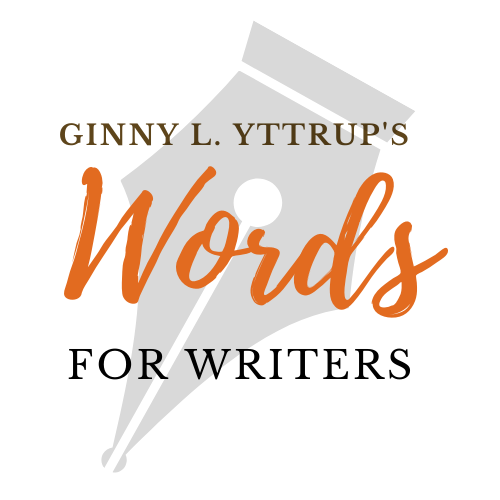Five Lessons from the Road to Publication

I pulled into the cabin’s driveway, put my car in park, and turned off the ignition. I stared into the inky night. The giant redwoods that surrounded the cabin, boughs stretched wide, offered strength and steadfastness in the light of day. But at night, they loomed.
My hand gripped the door handle, grief my only companion.
I opened the car door, then reached for my book bag on the passenger seat. Did the bag weigh more than it had when I’d left that morning? I got out of the car, dragged myself up the steps to the front porch, fumbled for my key, then let myself into the cabin’s quiet, musty foyer.
I flipped light switches to illuminate the empty rooms, but my soul remained a dark and unnavigable terrain.
I made my way into the living room, where I set down my bag, filled with materials from the weeklong writers conference I was attending. Then I dropped to my knees. I’d dammed my tears throughout the afternoon and evening sessions of the conference. But now they flowed in rivulets down my cheeks. I dug my fingers into the carpet and grasped a handful of the shaggy strands.
I’d worked so hard. For so long. I’d chased the publication dream for over a decade. My chest ached as I gasped for air between sobs. I could run no longer, chase no further. I untangled my hand from the carpet and pounded the floor with my fist. “No more. I’m done!”
The rejection I’d received from an editor that afternoon would be the last.
I couldn’t, I wouldn’t, do this to myself any longer.
Nothing Is Wasted on the Road to Publication
Twenty or more years and six published books later, the memory of that night stands as a marker on the map of my road to publication. A road I traveled for seventeen years.
Long years.
Often discouraging years.
But not wasted years.
The lessons I learned over that seventeen-year span are lessons that serve me well now, both in life and as a full-time author and writing coach.
Here are my top five lessons from the road. Maybe they’ll help you navigate your own journey to publication.
Dreams are a dangerous business. Dreams embody desire that leads to vulnerability. Surely, it’s better to stuff away desire and focus instead on the realities before us. Just take the next step. While I’m a proponent of living in the moment, I also believe in taking time to dream.
Unless we examine the desires nestled in our hearts and nurture the dreams those desires feed, our growth becomes stunted, and the character arc of our lives remains undeveloped.
It was many, many years before I allowed myself to risk dreaming of publication. In retrospect, a dream may have propelled me forward rather than leaving me stalled for so long.
Are you taking time to dream?
Lesson 2—Equip Yourself to Attain the Dream
While it would be nice if our fully realized dream arrived in a gift-wrapped box, attaining our dream most often results from determination and hard work. If you dream of publication, how do you propose to reach that milestone?
Whether you choose to self-publish or seek an agent to represent your project to traditional publishers, the first step toward creating a quality product requires honing your craft. There are many venues, tools, and professionals to help you strengthen your writing as you prepare for publication: blogs devoted to the writing craft, critique groups, mentors and coaches, and associations, groups, and conferences for writers.
Set a few realistic goals and commit to honing your craft so you offer your best possible work.
Also commit to a lifetime of learning. I still attend writers conferences when possible, and I still seek out mentors who will challenge me to continue my growth as a writer.
Lesson 3—Persistence Isn’t Optional
Persist. Persist. Persist.
A contract offer from a traditional publisher will come only after you’ve honed your craft, spent time researching and submitting your work to agents, secured representation by an agent, and waited while your agent shops your manuscript to publishers. The sum of time needed for these tasks will most often be measured by years rather than days.
To call attaining a contract offer a work of persistence is an understatement. It requires patience, determination, and especially persistence.
Persist. Did I already say that?
Lesson 4—Surrender the Dream
Why would I extol the virtue of taking the risk to dream, encourage you to equip yourself to attain the dream, exhort you to persist, and then encourage you to let go of your dream? Good question.
Let me distinguish between surrendering and relinquishing. When we surrender something, we give control of it to someone else. We surrender control of what happens, how it happens, and when it happens. When we relinquish something, we give it up. Or in the case of a dream, we give up. We stop believing in the possibilities and walk away from that which we desired and worked so hard to achieve.
In my pain and frustration that night so many years ago, I was ready to give up. But later, after my tears were spent, I recognized that giving up would lead to defeat. Instead, I surrendered.
In my case, I surrendered control of my dream and placed the outcome in the hands of God. I quit grasping and striving and instead accepted that if the dream was meant to come to fruition, I would continue to do my part, but would leave the results in God’s hands. I would trust.
With surrender came peace. And eventually, contentment. Whatever happened, I knew I’d worked hard, done my best. I could be satisfied with that.
When we find ourselves focused on our dream to the exclusion of all else, when we find ourselves striving for control, it may be time to surrender.
Lesson 5—Trust the Timing
Whoever said that timing is everything was both wise and right.
After fifteen years on the road to publication, which included several detours, and a few near-fatal accidents, I submitted the first twenty pages of an unfinished novel to an agent, through a writers conference I planned to attend. The day before the conference, I received an email from that agent, asking me to find him as soon as I arrived on the conference grounds. He wanted to discuss my project.
By the end of that conference, I didn’t have an agent, but I did have the probability of representation once I’d finished writing the manuscript. I glibly promised the agent that he’d have the completed manuscript within six weeks. I went home and got to work. And then. . .
Life.
Somehow, in the midst of one of the most daunting and painful years of my life, I finished writing that novel. But rather than six weeks, it took me more than a year to complete and submit that manuscript.
It took almost another full year for me to edit the manuscript and for my agent to shop it to publishers.
By the end of that second year, year seventeen on my publication journey, I’d nearly forgotten about the manuscript. I had other concerns: two young adult sons, an unexpected and disastrous end to a twenty-nine-year marriage, and the task of figuring out how to support myself after nearly thirty years as a housewife and stay-at-home mom.
Two weeks after my marriage ended, I received an email from my agent, asking me to call him “ASAP.” I’d barely had the energy to drag myself out of bed that morning, let alone make a call to my agent. But since I’d evidently missed a call from him already, I punched his number into my cell phone, then stood dumbfounded as he announced the offer of a three-book contract from my dream publisher.
Three books?
Three advances?
Three years of work?
Perfect timing.
I’ve heard similar stories over and over as I’ve talked with other authors about their first contracts. When the authors were ready, the offers arrived.
My publication path has proven the old axiom over and over since my first contract. Timing is everything.
Trust it.
If you’re embarking on a journey to publication, pack these lessons with you as a roadmap. Refer to them when you reach a crossroads or seem to face a dead end. They will lead the way. . .



